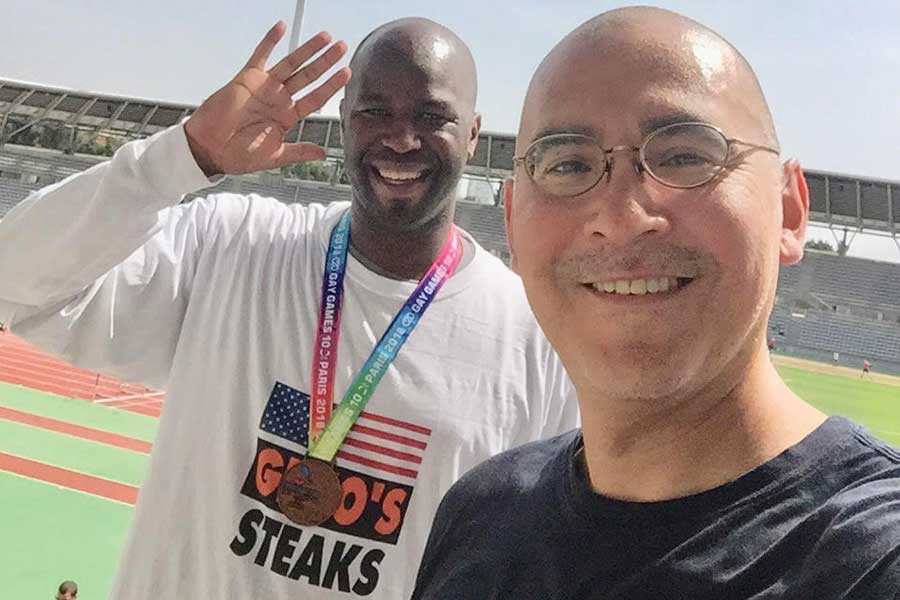Team Philadelphia took home 38 medals at the 10th annual “gay Olympics” sports competition in Paris, France.
Sixty LGBTQ-identified athletes comprising the Philadelphia team made their way to Paris to compete in 18 sporting events at the Gay Games, which took place Aug. 4-12.
The Gay Games, a quadrennial event that began in 1982 in San Francisco, hosted close to 12,000 participants from more than 80 countries.
Philadelphia’s team secured 10 gold medals in figure skating, swimming, basketball and softball. The Philadelphia Fusion softball team won its third gold medal, making it the undefeated champ for the last 12 years.
Joseph Bland, Fusion coach, helped to coordinate and organize the city’s Gay Games team with the Out Philly Athletic League, a nonprofit organization for the LGBTQ sports leagues in the Greater Philadelphia region. “The Gay Games helps to bring visibility to out athletes across the world who may have had to struggle with being gay and being an athlete,” he said. “I hear a lot of stories about gay people who don’t try at athletics when they’re younger because they were afraid of getting made fun of. The Games are a great way for people to realize that they are capable of being an athlete and being openly gay as well.”
The International Federation of Gay Games is the global governing body for the event, the world’s “largest sports and cultural event open to all,” according to its website. The federation is an all-volunteer, nonprofit organization where representatives spanning six continents serve on its board of directors. Since 1982, the Gay Games has taken place in six countries.
Antoine Johnson was one of Team Philadelphia’s medal winners, capturing a bronze in the 110-meter hurdle event. It was Johnson’s first time participating in the Gay Games and his first time competing as an openly gay athlete.
“I come from a very religious family, and in college, I didn’t feel comfortable being out as an athlete. I remember several kids being followed and getting beat up after leaving LGBT support groups, so I kept it to myself,” he said. “I never thought that I would have the opportunity to be out and compete without people treating me differently.”
Johnson entered the games with a hamstring injury. Two weeks before the Gay Games, he pulled his right hamstring, shortly after recovering from pulling his left hamstring a month earlier. Despite his doctor’s orders, Johnson flew to Paris to compete.
“I knew that there was no way I wasn’t competing. It meant too much to me. I didn’t want to let myself down, and I didn’t want to let my supporters down. My friends travelled with me to the Games to cheer me on, and that support and motivation were all that I needed to push through.”
Caitlin Daley, president of the Falcons’ soccer team, said she was proud of the third-place victory of the women’s team.
“This was the first major tournament we have traveled to. In the past, the club has sent men’s teams to many tournaments, and the women to more local ones, but this was the first in recent history of such a large scale,” she said.
Daley noted that, aside from the bronze-medal win, the sense of community was the biggest takeaway from the competition.
“The spirit of community and fair play is the biggest thing I’ll take away from the tournament. Teams took the time to trade pins or souvenirs, take photos or do a thank-you cheer for the other teams.”

